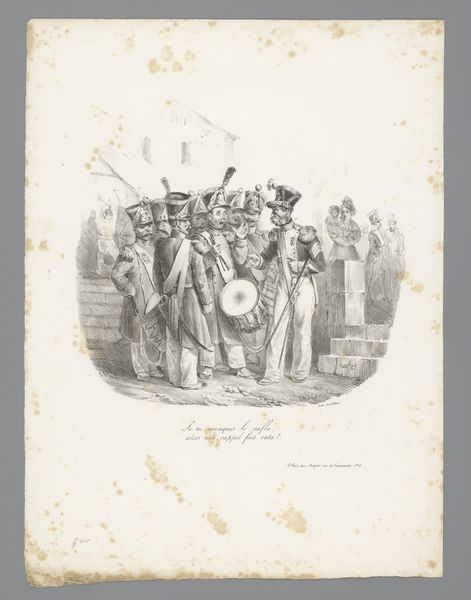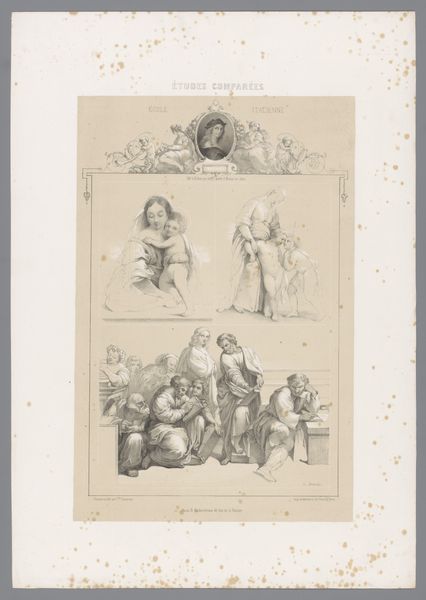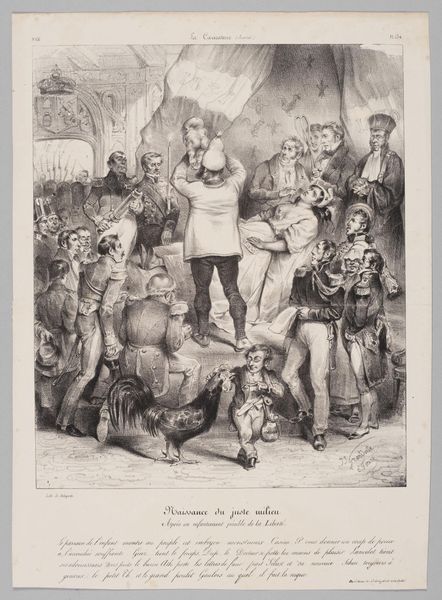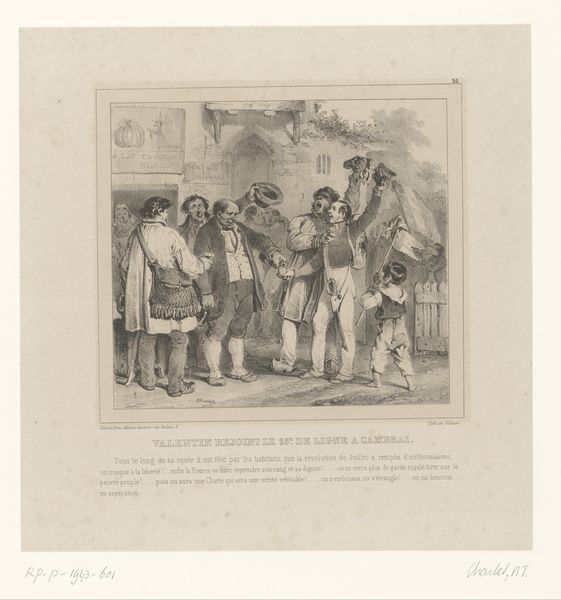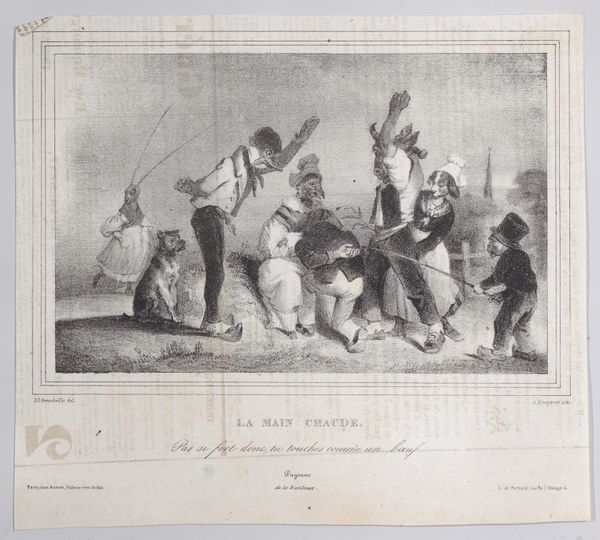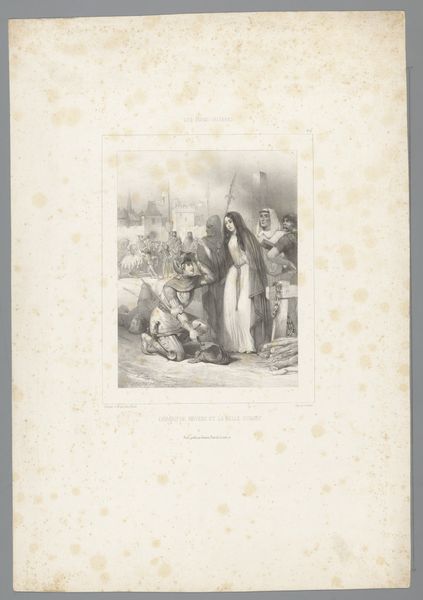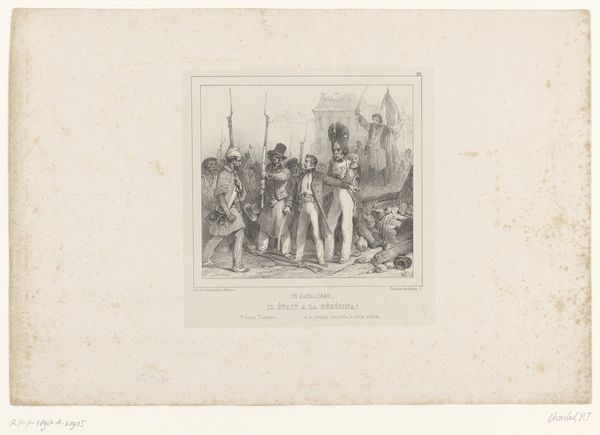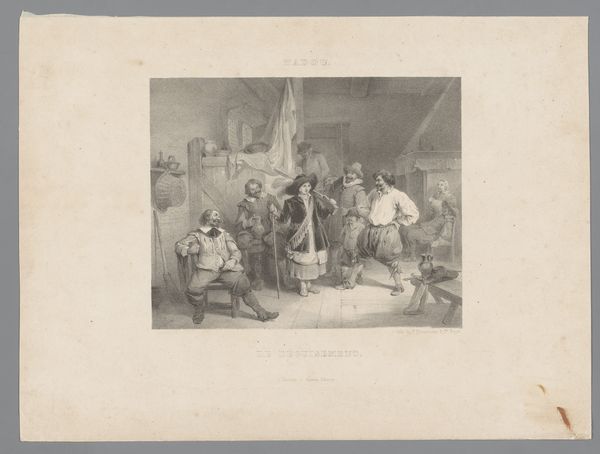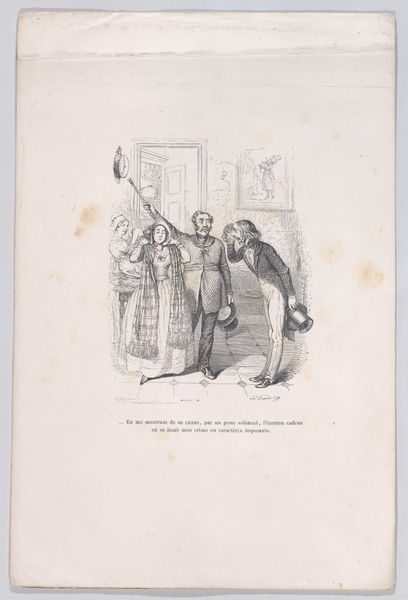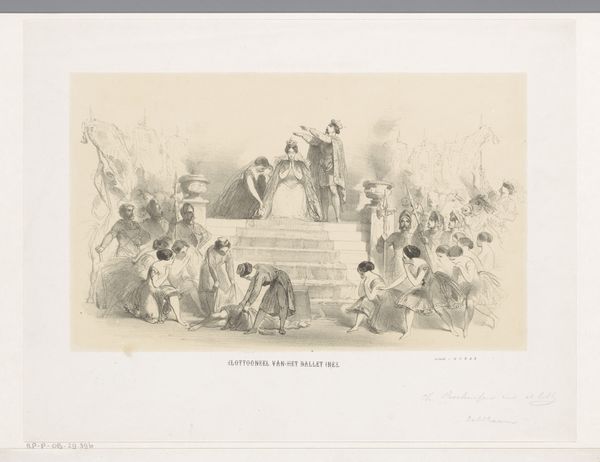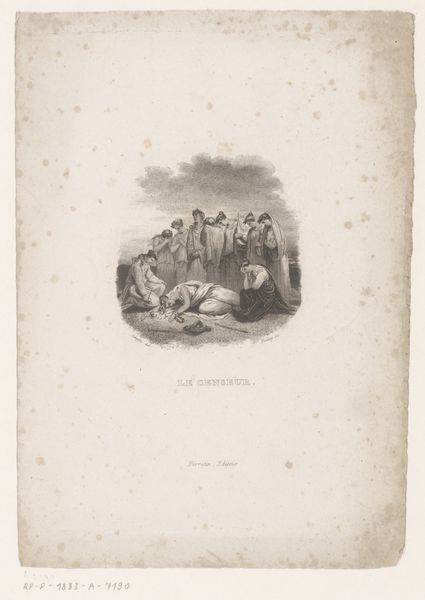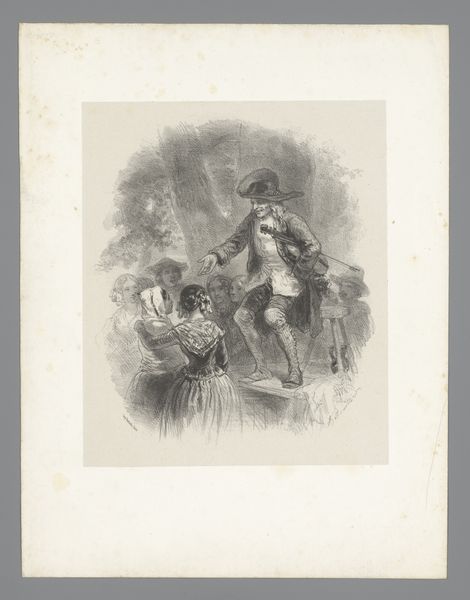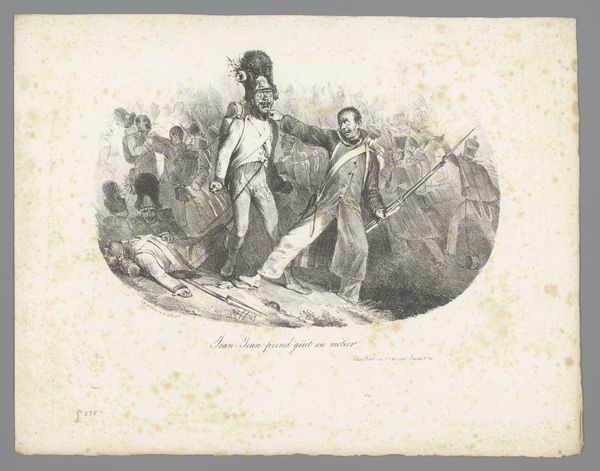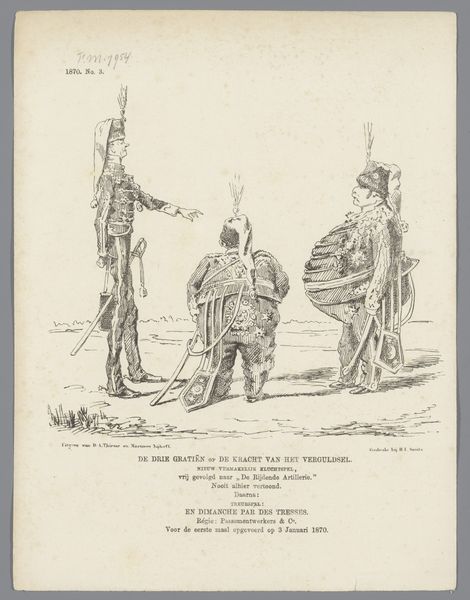
print, engraving
#
narrative-art
# print
#
caricature
#
romanticism
#
genre-painting
#
engraving
Dimensions: height 267 mm, width 362 mm
Copyright: Rijks Museum: Open Domain
Editor: We're looking at Auguste Raffet's "Man op stoel met ernaast beul met zwaard en trompet," or "Man on a chair next to a executioner with a sword and trumpet," created sometime between 1825 and 1829. It's an engraving at the Rijksmuseum. I'm struck by the contrast between the theatricality of the scene and what looks like the resigned expression of the man in the chair. How do you interpret the relationships of the figures based on the composition? Curator: Note the expert manipulation of line and form. Raffet organizes the composition to emphasize a strong vertical thrust with the executioner's sword and a visual connection is produced with the grim detail on his left arm. The horizon line, just behind the crowd, also plays an important role, allowing light to emphasize tonal relationships across the composition, producing starkness, even at a moderate scale. Do you agree? Editor: Yes, it feels very deliberate. But what is the significance of the figures seemingly placed, just so, in front of this constructed backdrop of onlooking faces? Curator: Indeed, the arrangement prompts further questions. Consider the contrast: the executioner's flamboyant pose— a sort of defiant pride— is highlighted by the subject's rather withdrawn passivity. His costume, too, offers an element for our attention— the white contrasts the color of the surrounding attire. It's a spectacle framed by those expressions, a play on our capacity to bear witness. What meaning do you draw from the lines etched, precise in their characterization? Editor: That's helpful. Focusing on the specific choices Raffet made really clarifies the sense of staged drama. Thanks! Curator: You're most welcome. By looking so closely at these forms, we see the piece has a strong engagement with formal devices.
Comments
No comments
Be the first to comment and join the conversation on the ultimate creative platform.
